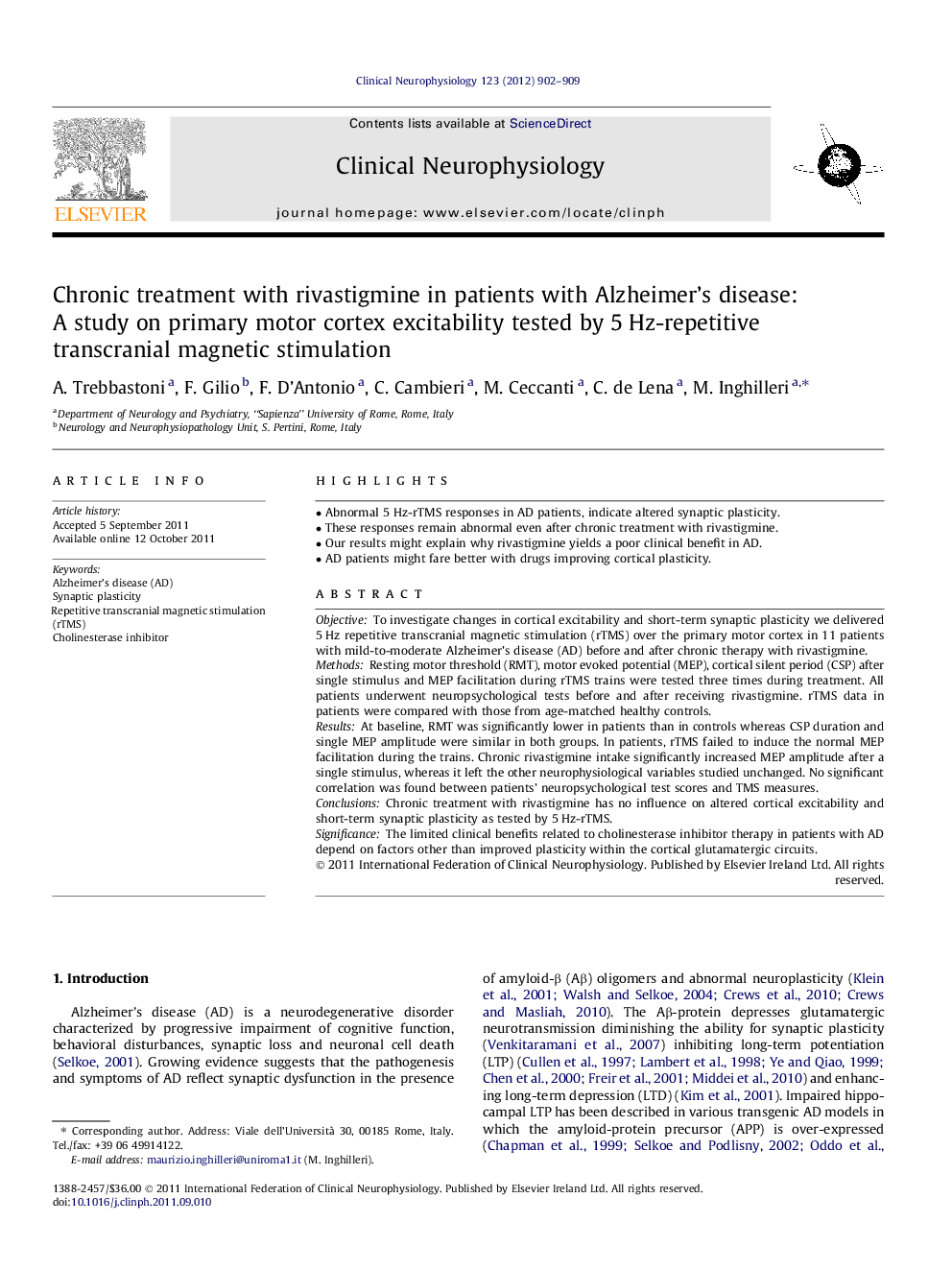| کد مقاله | کد نشریه | سال انتشار | مقاله انگلیسی | نسخه تمام متن |
|---|---|---|---|---|
| 3045283 | 1185018 | 2012 | 8 صفحه PDF | دانلود رایگان |

ObjectiveTo investigate changes in cortical excitability and short-term synaptic plasticity we delivered 5 Hz repetitive transcranial magnetic stimulation (rTMS) over the primary motor cortex in 11 patients with mild-to-moderate Alzheimer’s disease (AD) before and after chronic therapy with rivastigmine.MethodsResting motor threshold (RMT), motor evoked potential (MEP), cortical silent period (CSP) after single stimulus and MEP facilitation during rTMS trains were tested three times during treatment. All patients underwent neuropsychological tests before and after receiving rivastigmine. rTMS data in patients were compared with those from age-matched healthy controls.ResultsAt baseline, RMT was significantly lower in patients than in controls whereas CSP duration and single MEP amplitude were similar in both groups. In patients, rTMS failed to induce the normal MEP facilitation during the trains. Chronic rivastigmine intake significantly increased MEP amplitude after a single stimulus, whereas it left the other neurophysiological variables studied unchanged. No significant correlation was found between patients’ neuropsychological test scores and TMS measures.ConclusionsChronic treatment with rivastigmine has no influence on altered cortical excitability and short-term synaptic plasticity as tested by 5 Hz-rTMS.SignificanceThe limited clinical benefits related to cholinesterase inhibitor therapy in patients with AD depend on factors other than improved plasticity within the cortical glutamatergic circuits.
► Abnormal 5 Hz-rTMS responses in AD patients, indicate altered synaptic plasticity.
► These responses remain abnormal even after chronic treatment with rivastigmine.
► Our results might explain why rivastigmine yields a poor clinical benefit in AD.
► AD patients might fare better with drugs improving cortical plasticity.
Journal: Clinical Neurophysiology - Volume 123, Issue 5, May 2012, Pages 902–909